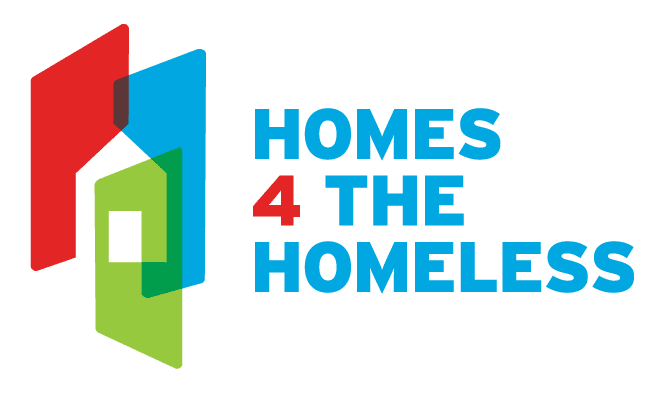As Anti-Trans Policies Escalate, NYC Launches the Nation’s First Trans-Specific Shelter, Offering Safety, Services, and Hope
Almost a third of trans Americans have experienced homelessness at some time in their lives, according to the 2022 U.S. Transgender Survey.
“Whether that starts with being kicked out of the home or discrimination in the employment market or all kinds of other things, this is a group that faces real challenges in the housing sector,” said Molly Wasow Park, commissioner of New York City’s Department of Social Services.
Trans people—especially trans youth—face enormous hurdles when it comes to housing security. These challenges are compounded by social stigma, politically backed discrimination, and hostile federal policies.
In response, Destination Tomorrow, a Bronx-based LGBTQ+ nonprofit, opened Ace’s Place: the first city-funded trans and gender-nonconforming shelter in New York City, and the first of its kind in the nation. Named in honor of the late mother of founder and CEO Sean Ebony Coleman, Ace’s Place was created to provide safe, affirming housing.
“The opening of Ace’s Place is an important move forward at a time when trans Americans are under attack,” Coleman said. “Ace’s Place is a community-driven answer to systemic neglect, and it’s only the beginning.”
A Shelter That Sets a New Standard
Ace’s Place is more than a roof overhead—it aims to model what inclusive homeless services could look like nationwide. Residents will have access to case management, counseling, housing placement, medical and mental health referrals, life skills workshops, and employment support. A full-time psychiatric nurse practitioner and clinical staff will provide comprehensive care, while programs like yoga, meditation, and financial literacy foster wellness and self-sufficiency.
The shelter also offers academic support, career preparation, and a culinary arts work-study program, giving residents hands-on training for careers in hospitality and food service.
Why Trans People Face Higher Risks of Housing Insecurity
Beyond the urgent need for trans-specific shelters and housing services, a range of social factors drive housing insecurity in the trans community—often beginning early in life. For many trans youth, instability starts at home, where coming out can lead to rejection, being forced out, or fleeing unsafe family environments.
In an exclusive interview with Invisible People, trans youth Ashlynn, age 23, from Salt Lake City, Utah, spoke on this widespread experience.
“In the home, I felt the need to ‘re-enter the closet’ after coming out to my parents several years ago, seeing how they reacted,” Ashlynn said. “My family is very important to me, along with having a place to live. Because of how badly it went with my parents, I’ve never had the courage to come out to anyone else since then.”
This experience is echoed in national data. According to the 2022 Trevor Project Homelessness Report, over a quarter of LGBTQ+ youth reported being homeless or housing insecure. Among those:
- 54% had experienced homelessness in the past
- 47% had been kicked out
- 56% had run away or been abandoned by loved ones
Rates are even higher among transgender and nonbinary youth, who are significantly more likely to face housing instability than their cisgender LGBQ peers.
Federal Policies Deepen the Crisis
By February 2025, President Trump had already signed multiple executive orders targeting transgender people, including:
- Banning trans women and girls from participating in women’s sports, with penalties for schools that refuse to comply.
- Eliminating federal diversity, equity, and inclusion initiatives.
- Blocking federal funding for youth gender-affirming care and for medical schools researching it.
- Restricting online access to information about trans health issues.
- Directing the Department of Defense to draft policies barring transgender service members.
These policies, rooted in weaponized political rhetoric, escalate the risks faced by trans Americans and intensify the need for safe, affirming spaces like Ace’s Place.
The Dangers of Outing a Trans Person
In today’s volatile political climate, safe spaces like Ace’s Place are more vital than ever. Ashlynn warns that one of the most dangerous threats trans people face is being outed—having their identity disclosed without consent. Outing, she explains, is not just telling a secret. It is a profound betrayal of trust that can shatter relationships, put housing at risk, and jeopardize employment.
“For this person to go behind your back and tell whoever they deem necessary to know, without your consent, is such a high form of betrayal,” she said. “You don’t know how this third party will react to your news – you don’t know if they will accept you. While queer people often know the detriment of outing, not everyone knows how bad outing is, especially older adults.”
The consequences of being outed extend into nearly every aspect of life. At home, it can mean losing a safe place to live; in the workplace, it can result in discrimination or the loss of a job altogether. As Ashlynn noted, finding and keeping work has long been a struggle for trans people, and those with little or no job security often suffer the most.
Despite these growing risks, Ashlynn holds onto hope. She believes every step forward—whether it’s a community victory or new funding for services like Ace’s Place—proves progress is possible even amid political hostility.
“We can’t stop fighting,” she urged. “Yes, a lot of aspects of our rights are being stripped from us in front of our eyes, but the moment we give in and stop fighting is when we lose it all. Also, it will get better for us! It may not happen all at once, but I truly believe not all hope is lost just yet. So don’t give up!”
